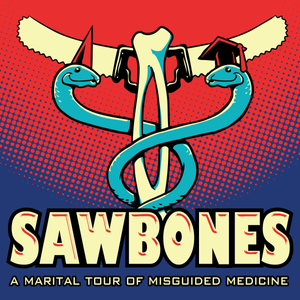
Cardio-Oncology: Addressing Cardio-Toxicities from Cancer Treatment
06/08/21 • 25 min
Cardio-Oncology: Addressing Cardio-Toxicities from Cancer Treatment
Cancer treatments have improved significantly over the last 40 years, with much improved outcomes for 5-year survival. In 1975, a cancer diagnosis came with a projected overall 5-year survival rate of less than a 50%. Today, the overall five-year survival rate is close to 70%, and for some disease groups, like breast cancer, the rate is much higher, especially if detected at an early stage. Cancer treatments have the potential to be hard on other organs of the body and some are especially hard on the heart and vascular systems. Many drug therapies, as well as radiation therapy, can have negative long term effects on the heart, if not managed correctly. Cardio-Oncologists bridge the gap between the oncologist and the cardiologist, to help prevent and/or manage the long term effects of cancer treatments on the heart.
Cardio-Oncology: Addressing Cardio-Toxicities from Cancer Treatment
Cancer treatments have improved significantly over the last 40 years, with much improved outcomes for 5-year survival. In 1975, a cancer diagnosis came with a projected overall 5-year survival rate of less than a 50%. Today, the overall five-year survival rate is close to 70%, and for some disease groups, like breast cancer, the rate is much higher, especially if detected at an early stage. Cancer treatments have the potential to be hard on other organs of the body and some are especially hard on the heart and vascular systems. Many drug therapies, as well as radiation therapy, can have negative long term effects on the heart, if not managed correctly. Cardio-Oncologists bridge the gap between the oncologist and the cardiologist, to help prevent and/or manage the long term effects of cancer treatments on the heart.
Previous Episode

Part 2 - Financial Toxicity in Cancer Care and its Impact on Oral Adherence
Part 2 of 3 - A Look at the Literature
In today's episode, we continue a 3 part series, exploring how increasing financial toxicity in cancer care is impacting patients’ adherence to self-administered oral medications. Part 2 explores some of the literature that describes the financial impact of a cancer diagnosis on an individual and their family.
A transcript of this podcast, including all of the references, can be found at our website, TKGOncology.com, on our resources page.
Next Episode

Supporting Precision Medicine with Genetic Testing – PART 1
Supporting Precision Medicine with Genetic Testing
PART 1: Understanding the Complexities of Genetic Testing
In this episode, we take a look at the challenges of managing complex cancer diagnoses and treatments with the help of genetic and genomic testing. Meagan Farmer is a Master's trained Genetic Counselor and provides an overview of the differences between genetic and genomic testing and what physicians are looking for when ordering a test. She also highlights some of the challenges with the massive amount of genetic data that comes from the testing and how that needs to be interpreted by physicians... and how overwhelming that can be.
www.TKGOncology.com
Meagan B. Farmer MS, MBA, LCGC
Genetic Clinical Operations Director
[email protected]
MyGeneCounsel.com
If you like this episode you’ll love
Episode Comments
Generate a badge
Get a badge for your website that links back to this episode
<a href="https://goodpods.com/podcasts/petauri-pact-executive-briefings-3-minute-market-insights-235533/cardio-oncology-addressing-cardio-toxicities-from-cancer-treatment-26330378"> <img src="https://storage.googleapis.com/goodpods-images-bucket/badges/generic-badge-1.svg" alt="listen to cardio-oncology: addressing cardio-toxicities from cancer treatment on goodpods" style="width: 225px" /> </a>
Copy




